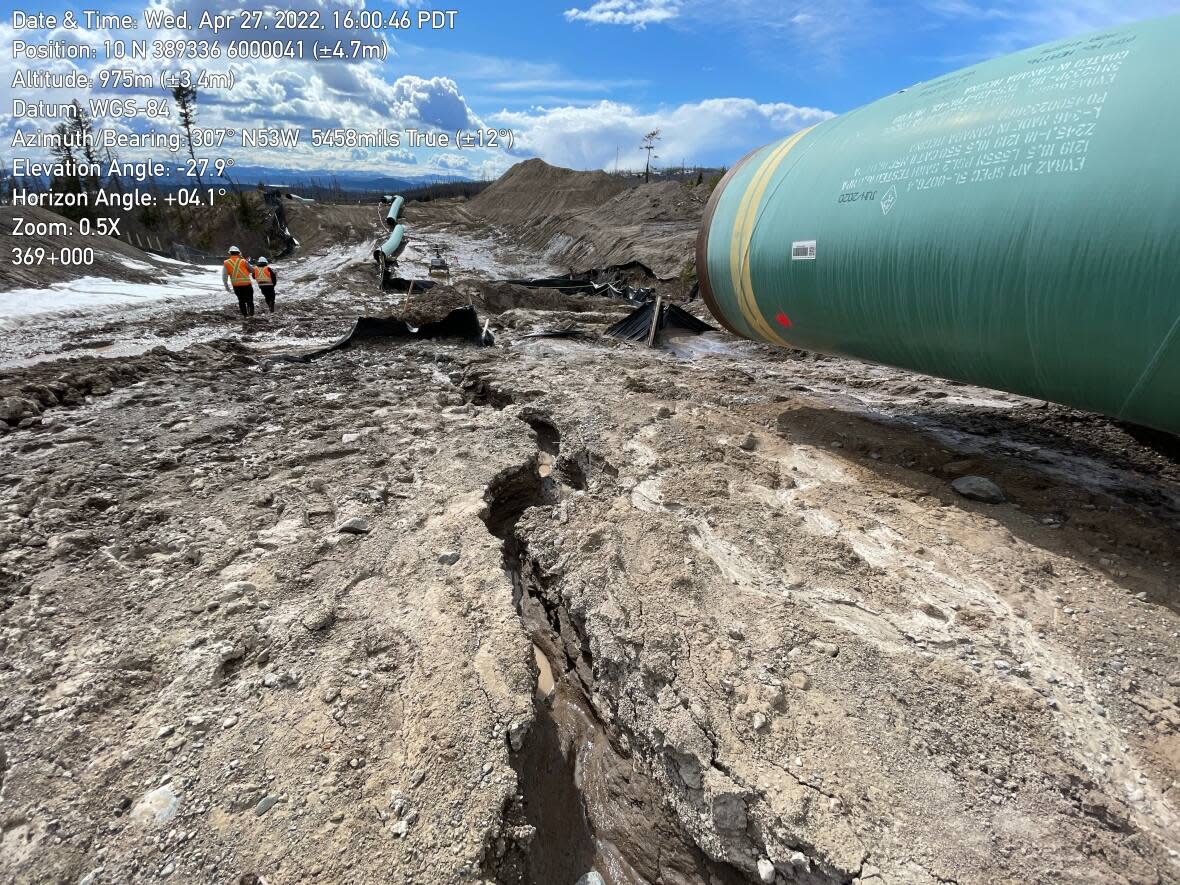Coastal GasLink hit with more stop work orders over water pollution concerns

Coastal GasLink has been issued stop work orders on a stretch of pipeline construction for the second time in just over a week, the latest in a pattern of environmental violations for polluting sensitive waterways.
The pipeline project crosses about 625 lakes, rivers, creeks, wetlands, and streams in northern B.C.

On Tuesday, the BC Environmental Assessment Office Compliance and Enforcement Branch said it had issued four stop work orders to Coastal GasLink late last week because erosion and sediment were negatively impacting the upper Anzac River watershed, about 130 kilometres northeast of Prince George.
Coastal GasLink confirmed that it had halted construction on a 20-kilometre section of pipeline, as well as on "numerous project work fronts."

Coastal GasLink has logged dozens of warnings from environment officials and has been fined just over $450,000 for violations since 2022.
"CGL's track record demonstrates a .... lack of respect for the land, water, and fish," said B.C. Green Party Leader Sonia Furstenau.
"How many restaurants would be allowed to continue if they had this many compliance issues?"

In a written statement Tuesday, Coastal GasLink's parent company, TC Energy, blamed the recent erosion and sediment problems on challenging mountainous terrain and climatic conditions during the spring melt, including a high snowpack, a spike in temperatures, and intense rainfall.
Furstenau said these reasons are precisely why a pipeline that will carry gas that's hydraulically fractured in northeastern B.C. should never have been built.
"Neither the terrain nor the impacts of climate change on watersheds are going to improve — in large part due to ongoing fossil fuel extraction," she said.

Coastal GasLink said the health of watercourses is "vitally important to us."
The company said it is hiring experts from outside the company to help mitigate the impacts of erosion and sediment.
Eight days before the most recent stop work order, on April 28, CGL was ordered to stop work on a three kilometre stretch of pipeline.
Environment officials said the company was pumping water laden with sediment into fish-bearing tributaries of the Little Anzac River.
High levels of sediment can be deadly to fish and their eggs and destructive to fish habitat.
Several Wet'suwet'en hereditary chiefs and their supporters, who call themselves water protectors and land defenders, have drawn international attention — and been subject to RCMP arrests and court proceedings — for opposing the pipeline's construction across their traditional territory.
Last month, Coastal GasLink spilled a clay lubricant while tunnelling under the salmon-bearing Morice River, considered a sacred headwater, called Wedzin Kwa.
The Coastal GasLink project is now 87 per cent complete, with construction completion scheduled for the end of 2023.
The pipeline will carry natural gas extracted from northeastern B.C. along a 670-kilometre route to an LNG export facility in Kitimat, to be shipped mainly to Asian markets.


